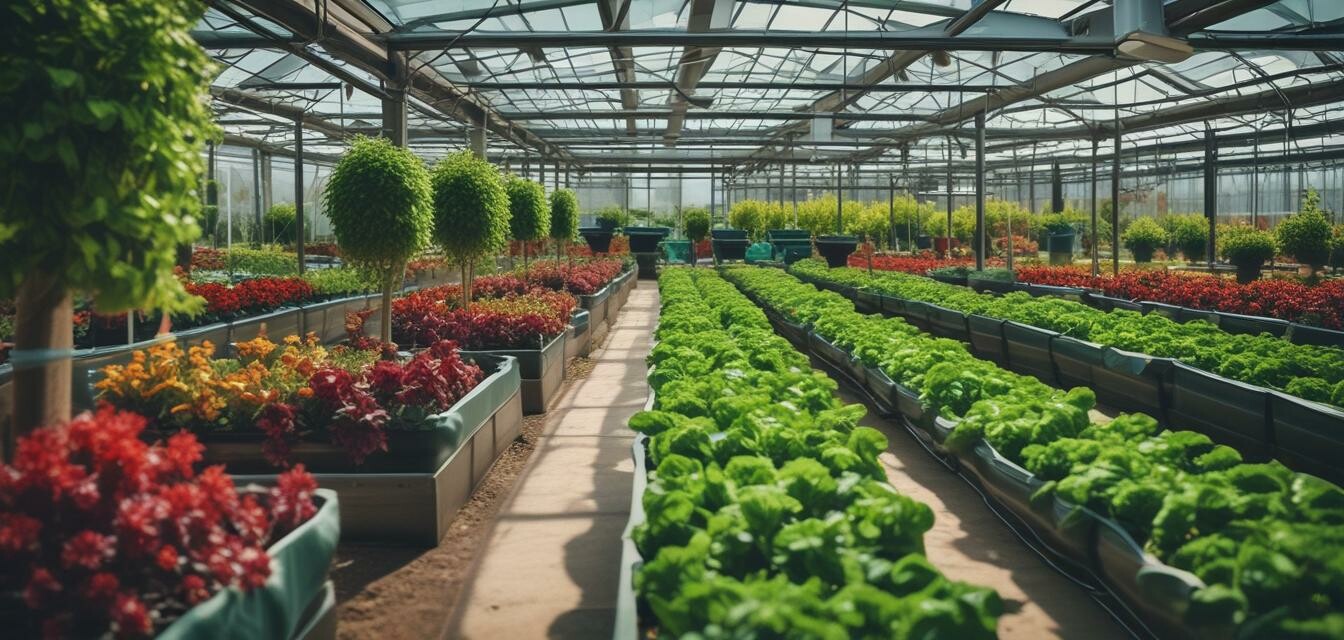
The Social Impact of Community Hydroponic Gardens
Key Takeaways
- Community hydroponic gardens enhance food access in urban areas.
- They serve as educational platforms for gardening skills and nutrition.
- Promote community engagement and collaboration among residents.
- They contribute to environmental sustainability through efficient resource use.
- Support local economies by providing fresh produce.
As urban areas continue to grow, so does the need for innovative solutions to provide fresh food, sustainable practices, and community engagement. Community hydroponic gardens are stepping up to meet these challenges by transforming underutilized spaces into thriving gardens. They not only provide access to fresh produce but also foster a sense of belonging and collaboration among residents. This article explores the social impact of community hydroponic gardens and how they are positively influencing neighborhoods.
Enhancing food access
One of the most significant benefits of community hydroponic gardens is their ability to improve food access in urban areas. Many neighborhoods, especially those categorized as food deserts, lack easy access to fresh and healthy produce. Hydroponic gardens help bridge this gap.
- **Local produce:** Community gardens provide fresh fruits and vegetables to residents.
- **Affordable food options:** Produce from these gardens is often sold at lower prices compared to supermarkets.
- **Nutrition education:** They serve as venues for educating the community about healthy eating habits.
Educational opportunities
Community hydroponic gardens also act as centers for learning, offering various educational programs. Many gardens collaborate with local schools and organizations to create curricula focused on gardening, nutrition, and environmental science.
| Educational Program | Focus Area | Target Audience |
|---|---|---|
| Gardening Workshops | Hands-on gardening skills | Community members of all ages |
| Nutrition Seminars | Healthy eating habits | Families and children |
| Environmental Studies | Sustainability practices | Schools and community groups |
Fostering community engagement
Community hydroponic gardens are successful not just because they provide food, but because they bring people together. These gardens encourage social interaction and collaboration among residents, strengthening community bonds.
- **Volunteer opportunities:** Residents can help with gardening, maintenance, and seasonal events.
- **Social events:** Community gatherings, markets, and workshops are organized to boost engagement.
- **Shared ownership:** Community members feel a sense of ownership and pride in maintaining the garden.
Contributing to sustainability
Hydroponic gardens utilize water and nutrients more efficiently than traditional soil gardening, making them a more sustainable option for food production. By growing food locally, they reduce the carbon footprint associated with transporting produce.
- **Resource-efficient:** Hydroponics uses up to 90% less water than traditional farming methods.
- **Chemical reduction:** With proper management, hydroponic systems can minimize the need for pesticides and herbicides.
Supporting local economies
Community hydroponic gardens have a positive impact on local economies. They help to create jobs, generate sales, and promote local entrepreneurship.
| Impact Area | Description |
|---|---|
| Employment | Gardens may provide jobs for local residents and create volunteer opportunities. |
| Sales | Community markets can generate income through the sale of produce and branded products. |
| Entrepreneurship | Gardens may inspire local businesses related to gardening, food, and sustainability. |
Conclusion
Community hydroponic gardens represent a powerful model for improving neighborhoods by enhancing food access, providing educational opportunities, fostering engagement, promoting sustainability, and supporting local economies. Their benefits extend beyond just growing food; they create a sense of community that strengthens bonds among residents while contributing to a healthier environment. As more cities recognize the importance of such initiatives, we can look forward to thriving urban spaces enriched by the collective efforts of their communities.
Pros
- Increases access to fresh food
- Offers educational programs for various age groups
- Encourages community involvement and bonding
- Promotes sustainable practices
- Stimulates local economies
Cons
- Requires initial investment for setup
- Maintenance can be labor-intensive
- Success can depend on community participation
For more insights on hydroponics, explore our latest news and trends, or check out our nutrient solutions to ensure your garden thrives. If you’re considering the right hydroponic system for your needs, our comprehensive guides can help. Don’t forget to look at our buying guides for more helpful tips.

